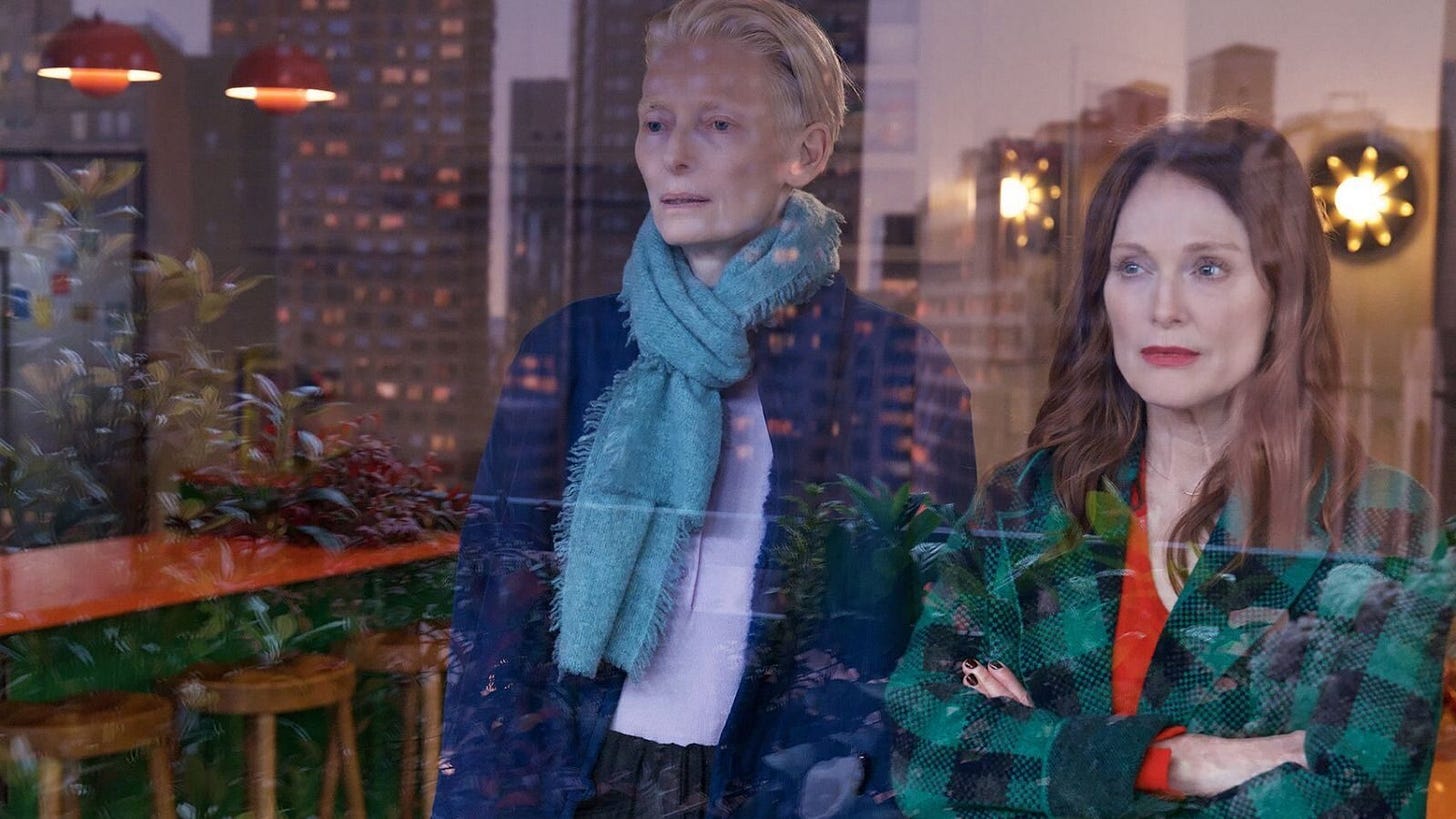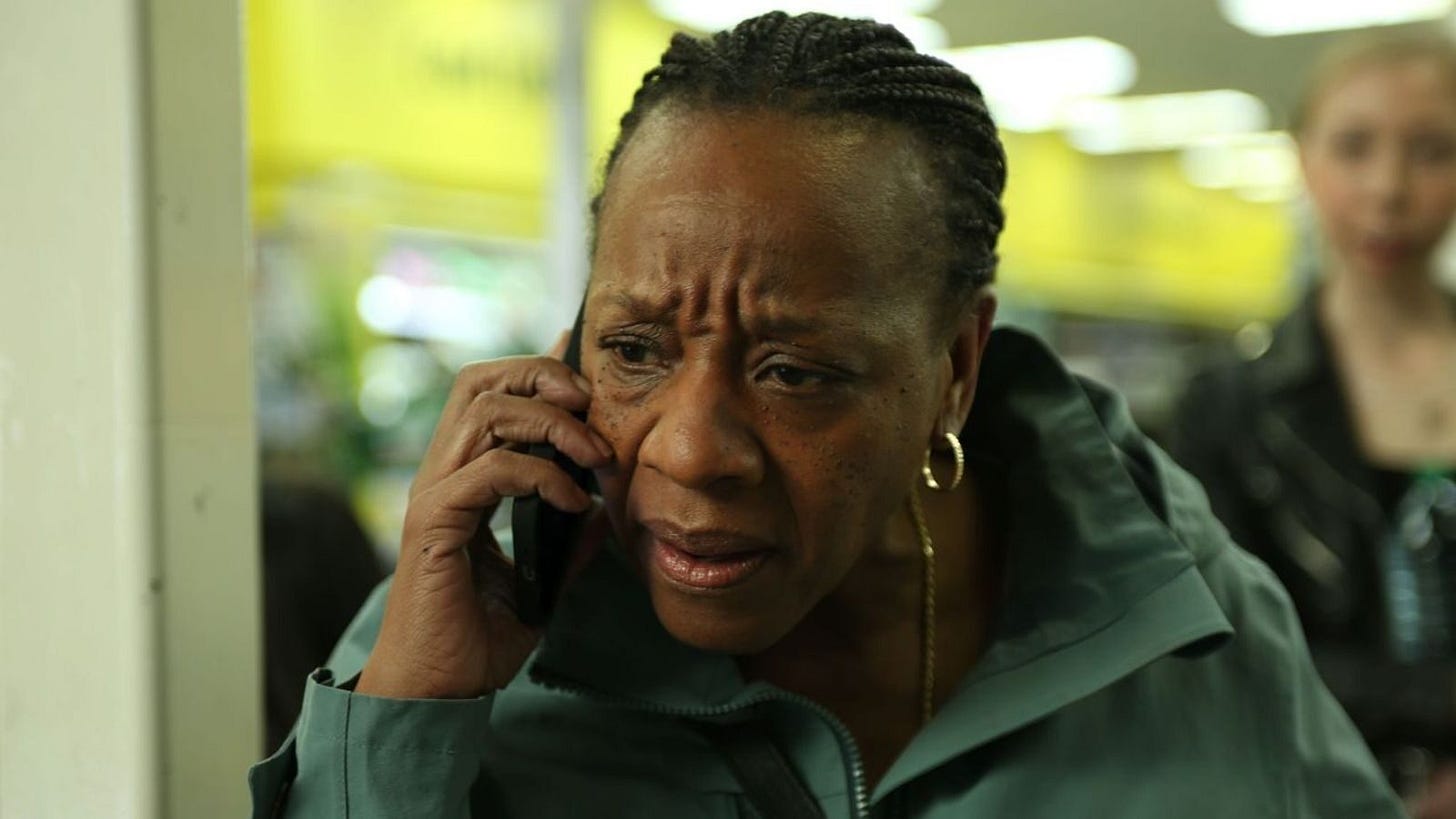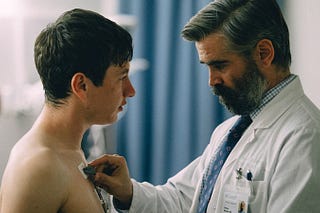
In Review: 'The Room Next Door,' 'Hard Truths'
Two intimate films from old masters quietly slip their way into theaters.
The Room Next Door
Dir. Pedro Almodovar
106 min.
Ingrid (Julianne Moore), a New York writer of some renown, has built a devoted following in part by admitting what she can’t understand. That includes death, which has remained a mystery to her even into middle age. How can someone be alive and then simply not? Because she’s honest, she’s addressed this in her latest book, which has been successful enough to attract a line of admirers to a midday book signing. But if Ingrid considers the topic closed, she’s disabused of this notion when, at the signing, an old friend reveals that Martha (Tilda Swinton), their colleague from the heady days of New York journalism in the 1980s, has been hospitalized and is being treated for an advanced stage of cancer. After they reconnect and rekindle their friendship, Martha makes a confession and asks a favor: she plans to end her life on her own terms but she does not want to be alone. Will Ingrid accompany her to a rented home upstate and stay with her as she waits for the right moment? “People should see this as my way of fighting,” she tells Ingrid by way of explaining her choice to take her own life. She knows she has to leave. She just wants to nail the goodbye.
The Room Next Door is Pedro Almodóvar’s first English-language feature, though certainly not the first one he’s had the chance to make. That he’s making his debut with a hushed, understated character piece almost seems like a deliberate choice not to make a big deal of the change in location and language. Adapted from the Sigrid Nunez novel What Are You Going Through, it’s unmistakably an Almodóvar film, but not the sort of Almodóvar film filled with searing revelations and wrenching drama. As Martha and Ingrid spend time together and recall the past, the film flashes back to Martha’s career as a war correspondent and as a mother. She judges herself to be excellent as the former but too-absent as the latter, and though their estrangement haunts her, she has no plans to take dramatic actions to reconcile with her daughter. Mostly, the two watch movies and enjoy the countryside (and a home decorated in the bold colors Almodóvar favors) as Ingrid waits for the morning she’ll find Martha’s door closed, her signal that the end has arrived.
The film rests on the shoulders of Moore and (especially) Swinton’s’s performances, which help offset some of the structural creakiness. The flashbacks to Martha’s youth and incidents in the life of her daughter’s father after their separation, for instance, seem to be setting up story points that the film never circles back to address and Ingrid’s scenes with Damian (John Turturro), a lover of both Martha and Ingrid years ago, end up feeling like distractions. Though excellent on its own, as always, Alberto Iglesias’ score sounds better suited to a more overtly dramatic Almodóvar film.
But apart from a few moments in which it feels like The Room Next Door is about to transform into a right-to-die issue film, it's primarily a moving and unabashedly small film about dying. Swinton plays Martha as a woman gripped by mood swings—reflective one moment, agitated the next—who’s still in the process of figuring out her life even as she prepares to leave it. Some of the film’s best moments are also its quietest, as when Martha sits in the lobby of Lincoln Center and looks out on the city with the understanding she might never sit in this place and take in these sights again. The finality of it all may have confused Ingrid her entire life, but Martha has come to understand it. —Keith Phipps
Hard Truths
Dir. Mike Leigh
97 min.
Quite literally from the moment she wakes up—invariably with a shriek and a defensive posture, like the touchiest house cat in the neighborhood—Pansy Deacon (Marianne Jean-Baptiste) is a nightmare to be around. She’s like an insult comedian without punchlines, targeting anyone who’s in her vicinity, whether it’s a family member, a store clerk, or a doctor and dental hygienist gently poking their way through an examination. When her 22-year-old son Moses (Twaine Barrett), a painfully shy and obese outcast, goes for his daily walk, Pansy warns, “People are going to accuse you of loitering with intent.” When her sister Chantelle (Michele Austin), a hairdresser, tries to work a comb through her hair, she snaps, “You should have been a prison warden.” Even a peacekeeper during a needless spat at the grocery checkout line gets scolded: “You can pipe down and all, standing there like an ostrich.” (The casting of this bit part is so good that the insult actually does count as a damn funny zinger.)
What in the world is wrong with Pansy? That’s a question she’s asked more than once in Mike Leigh’s caustic comedy-drama Hard Truths and one that Leigh isn’t in any hurry to answer. After spending much of the last 25 years applying his famously rigorous technique to richly detailed period pieces—the Gilbert and Sullivan biopic Topsy-Turvy, the ‘50s-era abortion drama Vera Drake, and, most recently, the underrated historical film Peterloo—Leigh now returns with an unvarnished contemporary work that feels like an earlier work or at least the flip-side to his 2008 film Happy-Go-Lucky. (Seinfeld fans may call this one “sad-stop-unlucky.”) Or maybe it’s just a late companion to his 1996 film Secrets & Lies, given his reunion with the great Jean-Baptiste and with Austin, who had a smaller supporting part in it.
Whatever the case, Jean-Baptiste was a relatively taciturn counterpart to the volcanic Brenda Blethyn in Secrets & Lies, but is the full animating force of Hard Truths, where she leans into a volatile woman who's aggressively off-putting before peeling back the layers. Part of Leigh’s collaborative process is to have his actors create characters from scratch, with full personal histories, and here he leaves the audience to wonder how Pansy got to such a miserable place. Her modest, sterile home is filled with tension that she’s inclined to stoke, whether blasting Moses for being a layabout or directing rants at her quiet husband Curtley (David Webber), who has his own plumbing business. Meanwhile, Chantelle is her temperamental opposite, an unerringly pleasant single mother whose daughters are healthy, professional, ebullient young women and whose apartment teems with life.
Leigh perhaps overplays the contrast between the two sisters—Pansy fusses over a fox that invades her lifeless backyard plot while Chantelle drinks a beer on her flower-filled balcony—but the conceptual simplicity of Hard Truths mostly works in the film’s favor. The only real event that happens in the story is the sisters’ plan to visit their mother’s gravesite on the fifth anniversary of her death, with both families getting together at Chantelle’s apartment afterwards. Pansy’s refusal to commit to the plan is what counts for suspense in Hard Truths, but it’s plain that the deceased looms large in Pansy and Chantelle’s life and how they’re functioning now as middle-aged adults.
In the early going, Hard Truths gets plenty of comic mileage out of Pansy’s reflexive, unsparing rancor, where she goes out of her way to provoke complete strangers and even reflects bitterly on infant fashion. (“What’s a baby need pockets for?”) The dramatic shoe does finally drop, of course, as Leigh and Jean-Baptiste reveal the inner pain and loneliness that has led Pansy on a path that’s diverged so much from Chantelle’s. Pansy’s reaction to a single, unexpected gesture of kindness is a true master class of acting from Jean-Baptiste and one of those small, revelatory moments that can turn an entire film. After bringing the past fully to life in many of his most recent films. Leigh proves that a single character can be a world, too, when handled with this much care. — Scott Tobias
Hard Truths opens in limited release this weekend.




















Seen Peterloo and Happy Go Lucky. Where would Leigh fans suggest I go next?
I swear that must have been an auto-correct I didn't catch. Fixing...